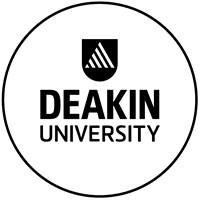Dr M Pereira
No more applications being accepted
Funded PhD Project (Students Worldwide)
About the Project
Congratulations on taking your first steps toward a Research Degree with Coventry University. As an ambitious and innovative University, we’re investing an initial £100m into our new research strategy, ‘Excellence with Impact’. Through original approaches from world-leading experts, we’re aiming for our research to make a tangible difference to the way we live. As a research student you are an integral part of Coventry’s lively and diverse research community and contribute to our reputation for excellence. With our exceptional facilities and superb support mechanisms you are afforded every opportunity for academic success.
This year Deakin was awarded the ARC Training Centre in Alloy Innovation for Mining Efficiency, worth several million dollars of additional research funds. This centre aims to make Australian manufacturers dominant in the multi-billion dollar mining equipment sector by training innovators to design the world’s best highly customized long-life, wear resistant components. It intends to rapidly develop customized alloys that excel in severe mining conditions, using 3D-printing, novel characterisation and its networked training environment. It expects these innovations will enable much needed efficiencies after the end of the mining super-cycle. Anticipated outcomes are the design of products with superior alloy design and material selection; jobs growth and security in the mining component production sector; and increased mining efficiency and cost reduction.
Such outcomes address maintenance and life spans issues of the mining industry. Detection and understanding the phenomena though sensitive sensor applications will assist in control through prototype and patentable systems. This work also contributes to the further understanding of cutting, ploughing and rubbing experienced during grinding which is required when considering the increasingly difficult to cut materials today.
Some of the underlying questions that will be addressed during the project; How do the signals vary when the microstructure changes over the length of a scratch? How to minimise uncertainty of signal to material phenomena correlation? How do signals provide qualative and quantative data related to optimised wear resistant materials? What effect does complex microstructure have on grinding tools?
About the host Centre/Department:
Deakin has recently been awarded a multi-million-dollar project to develop wear resistant alloys for mining sector. Mining has been a major industry for Australia for over 150 years. Current mining practices in Australia utilizes enormous machines to open cut large chunks of ore from the earth. Improving the lifespan of tools have tremendous cost implications for this industry. The tools undergo severe grinding in use. Dr Griffin and Dr Pereira have both studied and developed models for wear for classical grinding and sheet metal stamping respectively; and they are in a good position to develop models for severe abrasion wear.
Candidate specification:
Successful applicants will have:
• A minimum of a 2:1 first degree (second class honours upper division) in a relevant discipline/subject area with a minimum 70% mark in the project element or equivalent with a minimum 70% overall module average, and/or
• A Masters Degree in a relevant subject area will be considered as an equivalent. The Masters must have been attained with overall marks at 70%. In addition, the dissertation or equivalent element in the Masters must also have been attained with a mark at 70%.
• The potential to engage in innovative research and to complete the PhD within a prescribed period of study
• Language proficiency (IELTS overall minimum score of 7.0 with a minimum of 6.5 in each component).
Additional items for candidate specification:
We are looking for a candidate with good background in mechanics of materials, finite element/numerical modelling, mechanical design and testing, sensor development, instrumentation and data processing.
Application Procedure: http://www.deakin.edu.au/research/become-a-research-student/how-to-apply-research-degrees
Please contact Dr Michael Pereira (https://www.deakin.edu.au/about-deakin/people/michael-pereira) for an initial informal discussion about the opportunity.
Duration of Study:
Full- Time- three years fixed term
Entry point is May 2018
Funding Notes
A$27082 plus tuition fees

 Continue with Facebook
Continue with Facebook

